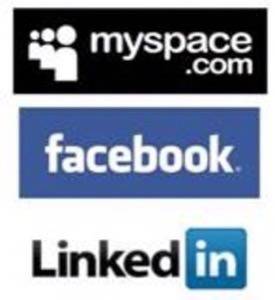In our society, there’s an image of a computer nerd as this sad, pale, and lonely guy sitting in the dark gazing at a glowing screen. As it turns out, that’s just an image and it’s far from the truth. The reality is that most technology users are perfectly well-adjusted and social creatures. In fact, those who surf the web and use their mobile phones may actually be more social and better connected to the world at large than those who don’t.

According to a new study from Pew Internet and American Life Project, technology does not lead to social isolation, as many often suspected. Instead, researchers found that online participation and mobile phone usage leads to people having larger and more diverse core discussion networks. (Discussion networks are defined as being the places where we can discuss “important matters” with friends and confidants.)
Internet Use and Social Media
That’s not to say that there aren’t some technology addicts that aren’t social isolated – around 6% of the adult online population would fit in this category, having no one with whom they can talk about those important matters and who say they don’t have anyone “especially significant” in their life. However, this figure (the 6%) has not grown as access to technology has grown over the years – it has remained virtually unchanged since 1985. This points to the fact that perhaps those who are socially isolated individuals would be so anyway, regardless of what sorts of tools are provided to them, be those mobile phones, PCs with internet access, etc.
For the majority of the online population, technology – and especially social media – has led to more diverse networks than we’ve ever had before. The report notes that those who participate in social networking services such as Facebook for example, are more likely to interact with people from different backgrounds, different races, different political parties, etc. Specifically, blogging and general internet use was tied to having more racially diverse networks while online photo sharing was tied to having more diverse political discussion partners.
Those who use the internet tend to have 15% more network ties who aren’t family members and those who use instant messaging services have 19% more non-kin members in their core networks.
Mobile Phone Use
Along these same lines, the ubiquity of mobile phones hasn’t led to decreased face time with family and friends, but just the opposite. On average, a person spends 195 days of the year having mobile phone contact with others, but face-to-face interactions occur on about 210 days per year. In addition, mobile users have around 15% more family members with whom they can discuss important matters and tend to have 25% more core network members who are not family members. Overall, those who use mobile phones have core networks that are 12% larger than those who don’t.
Despite all this good news about how technology leads to having larger, more diverse networks, the researchers also found that our networks’ size has actually shrunk over the years. Since 1985, there has been a decrease of about 1/3 in their size. The researchers don’t suggest any specific reasons for this shrinkage, but they do point out that they can now rule out one possibility for sure: technology.










